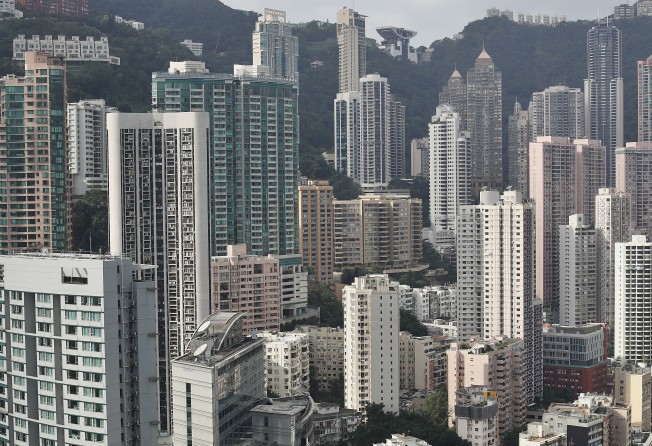About 1.43 million private flats in Hong Kong won’t be subject to property tax next year, as part of budget relief measure
But government data shows the extent to which developers and the rich stand to gain – the city’s top 10 flat owners saved more in rates waivers in the last two years than the remaining 90 names on a list of 100 owners

Owners of eight in 10 private homes in Hong Kong, or about 1.43 million properties, will enjoy full rates waivers on their properties for the upcoming financial year, under a relief measure in the budget announced last month.
The measure – part of a HK$50 billion (US$6.37 billion) spending package announced by Financial Secretary Paul Chan Mo-po to share some of the city’s record HK$138 billion surplus – means almost four times more properties will be exempted from the indirect tax in 2018-19, compared to the current financial year.
But a look at government data from the past two years reveals the extent to which the waiver will benefit developers and wealthy people with multiple properties.
Information that the Financial Services and the Treasury Bureau gave to the Legislative Council showed that the top 10 private domestic property owners in the city – who owned about 40,000 flats in total – saved between HK$124 million and HK$126 million annually in rates waivers in the current and previous financial years.
In fact, what these 10 owners – who could be individuals or companies – saved and the number of flats they have between them surpassed the savings and total number of flats belonging to the remaining 90 names on a list of top 100 property owners, according to the same government data.
Rates are reviewed annually by the government, and depend on the location of the flat and its rental value, among other factors.
For 2018-19, rates waivers will amount to HK$17.8 billion in lost revenue for the government. The figure was about HK$10.9 billion for 2017-18.
Former chairwoman of the Tax Committee of Institute of Certified Public Accountants, Florence Chan Yuen Fan, said developers and wealthy homeowners with multiple properties would be beneficiaries of the government’s lost income.
“Basically, one would be entitled [to the waiver] if one owns a property. More properties would mean more exemptions, making the rich richer,” she said.
The increase in the number of properties eligible for rates waivers was due to the financial secretary’s announcement that the waiver amount would be raised from a maximum of HK$1,000 per quarter to HK$2,500, applicable to both residential and commercial properties.
Besides the waivers, Chan announced salaries and profit tax rebates and increased old age and disability allowances for at least two million Hongkongers. But lawmakers across the policial spectrum criticised his spending package for largely benefiting the middle class and ignoring those who neither paid taxes nor received allowances.
A paper from the Financial Services and the Treasury Bureau, given to lawmakers on Monday, said that nearly all public housing flats would not be subject to the annual property tax for 2018-19.
Neither would about 55 per cent of the 413,000 commercial and non-residential properties.
Florence Chan suggested that the government set limits, and allow an individual owner or company to claim rates waivers for only a limited number of properties, or have a two-tier system similar to profit tax waivers, where there would be a bigger waiver for a small number of properties and a smaller waiver for the rest.
She admitted, however, that this could mean an increase in administrative costs to conduct eligibility checks.
Executive councillor, Regina Ip Lau Suk-yee, also believed the government should rethink its blanket policy on rates waivers, as the main beneficiaries would not be regular families but holding companies.
“The priority should be to help the needy, and the sandwich class,” Ip said.